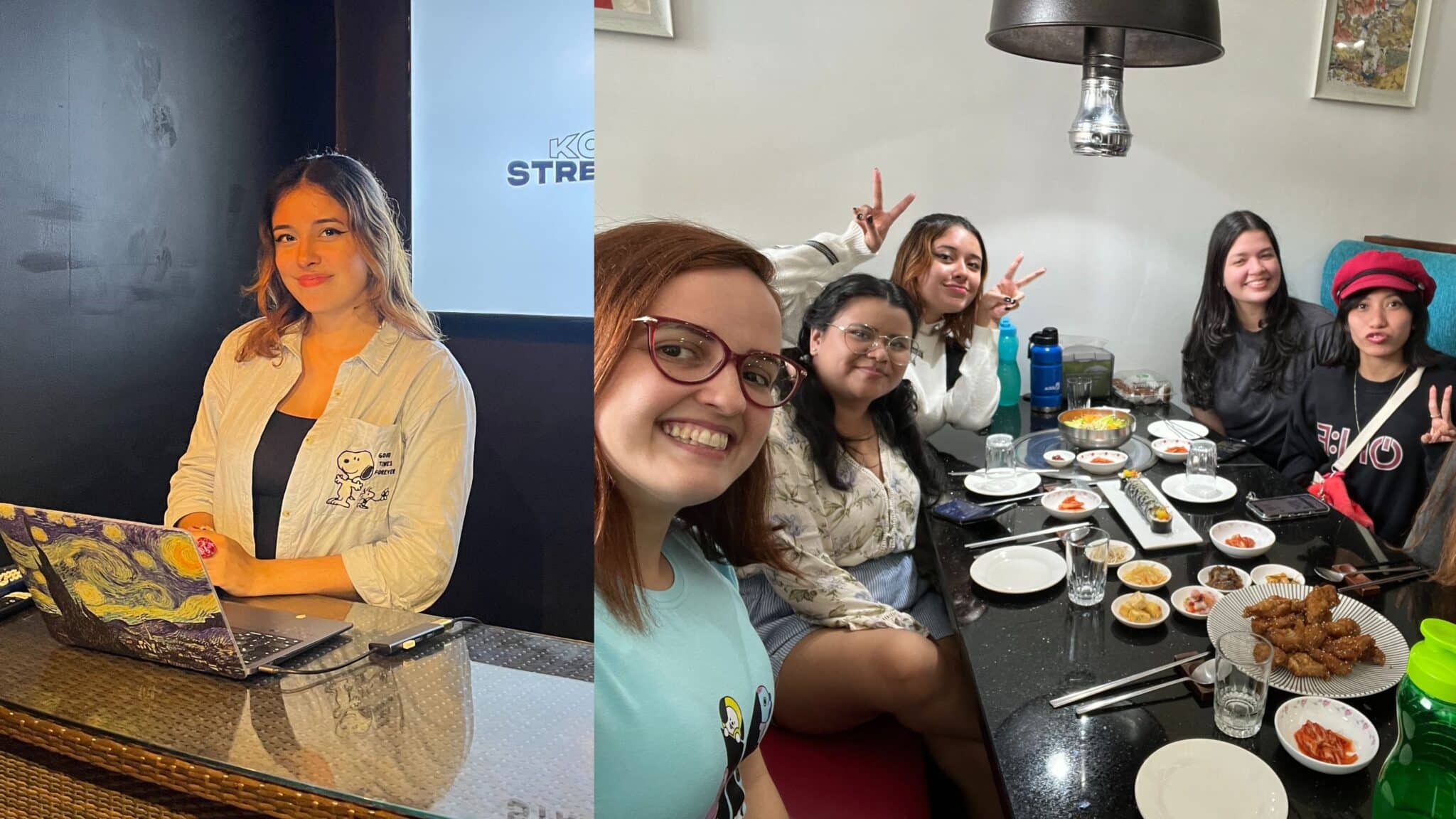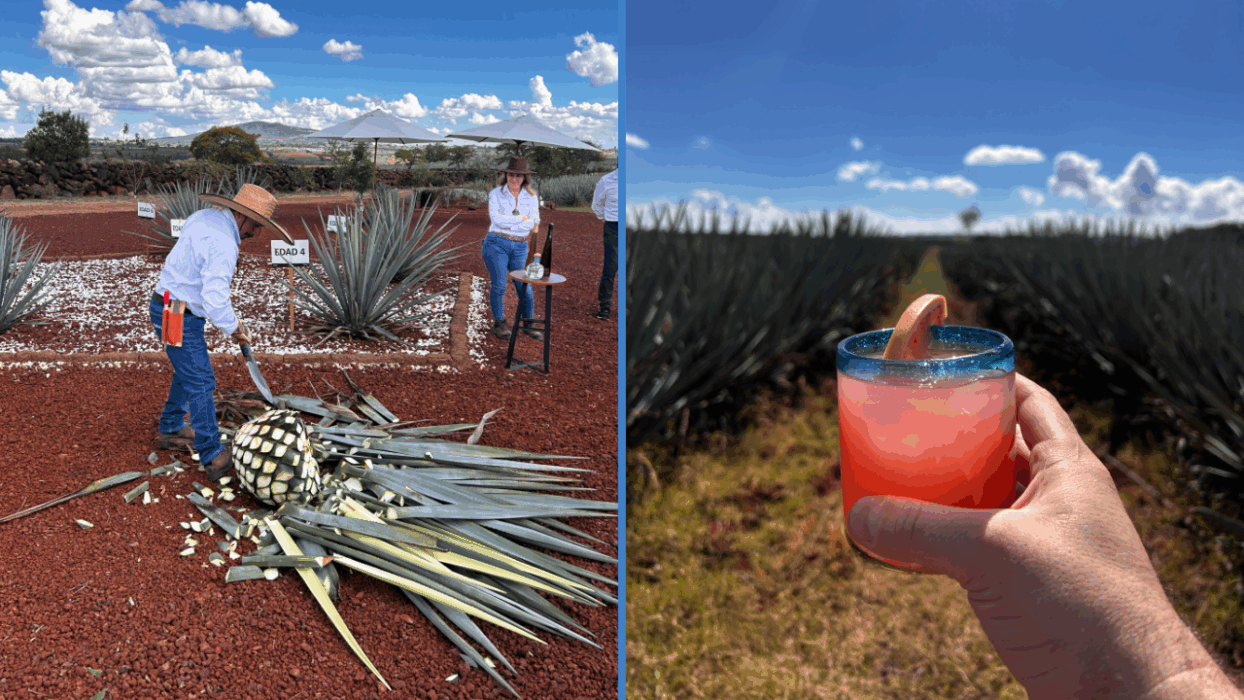
It Sounds Like These TikTokers Are Cursing in Spanish, They’re Really Speaking ‘Koreañol’
For centuries, Spanish speakers who move to a foreign country where another language is spoken, may have ended up blending both languages into a hybrid. Hello Spanglish, Portañol and Frenchañol.
With the rise of globalization and migration to different countries, opportunities for hybrid languages are expanding. However, we never thought we’d be introducing you to Koreañol.
Nope, you didn’t read that wrong — it’s a blend of Spanish and Korean. Equally shocked and interested in learning more about this new hybrid, mitú spoke to the Director of the Academia de Coreano in Panama, Gigi Crisan, to learn more on how this came about. Safe to say, we got schooled.
Koreañol is the hybrid language you didn’t know you needed
A recent TikTok showcasing two friends speaking to each other in a Korean-Spanish hybrid, sometimes called Koreañol, has gone viral. With people on TikTok asking: “Why did I lowkey understand this?”
Like many who speak both Spanish and Korean, Crisan’s initial interest in the language came from her love of K-pop music and K-drama TV shows. These cultural exports are becoming increasingly popular in Latin America.
“I started learning it with a Korean teacher,” she says. “Eventually, I became her apprentice and then started giving my own classes.”
When she first started teaching Korean in Panama, Gigi did exclusively one-on-one classes with no social media outreach. She didn’t even have a name for her program.
Over time, she developed a curriculum that could apply to an entire classroom of students. Last year, she started the Academia de Coreano en Panama in collaboration with the country’s chapter of the International Youth Foundation.
Gigi said she wanted to “create a community full of Latin people that have an interest in learning the language and participating in events related to Korean culture.”
While Gigi is teaching Korean to Latin students in Panama, roughly 15,000 students in Korea are learning Spanish, according to Sino-NK. For this to be possible, the Korean-Spanish hybrid is necessary for learning on both sides of the equation.
“The Korean-Spanish hybrid has always existed within the academy,” she explains. “We often combine both languages while teaching the classes, using a lot of references so our students can understand the nuances better.”
Get ready to be K-schooled
Although it looks easy on TikTok, it gets tricky when starting the learning process.
Korean and Spanish are variations of a pronoun-dropping language, or pro-drop. It’s a pretty intense linguistic concept, but it refers to languages that can drop pronouns depending on if they’re necessary or grammatically correct.
Korean is a topic pro-drop language. This signifies topic of the sentence is droppable because the pronoun is implied in the sentence.
However, Spanish is a full pro-drop language. In this case, referential pronouns are mostly unnecessary because the verbs go through a conjugation process. This doesn’t apply to every verb in Spanish, but it does apply to many of them.
Koreañol works by blending linguistics and pronunciation
The Korean-Spanish hybrid is partially a product of these pronoun-dropping similarities. However, there are commonalities in pronunciation to consider, as well. Crisan says this helps the students make linguistic connections.
“Our students create their own references and comparisons within both languages to grasp some concepts,” she explains. “For example, 가게 in Korean means a store, and the pronunciation is cague, just like how you say shit in Spanish. We always make that comparison. It’s so funny, even for Koreans.”
The accidental profanity doesn’t end there, either.
“주차, that means parking lot. It’s pronounced chucha, which is a bad word here in Panamá,” she says.
In the viral video, some commenters pointed out a specific phrase Gigi uses that, for some reason, just scratched an itch in their brains.
In the conversation posted to TikTok, Gigi and her student speak in Koreañol about what they should eat. At one point, Gigi says she’s a little hungry by saying, “un poco 배고파.”
“배고파 meaning hungry,” she said. “The pronunciation is begopa which sounds a little like preocupada.”
Despite the geographical and cultural differences, Korean and Spanish have much more in common than people think. As Korean and Latin cultures continue crossing over through music, movies, television, and books, Koreañol may continue to rise in popularity in the future.




